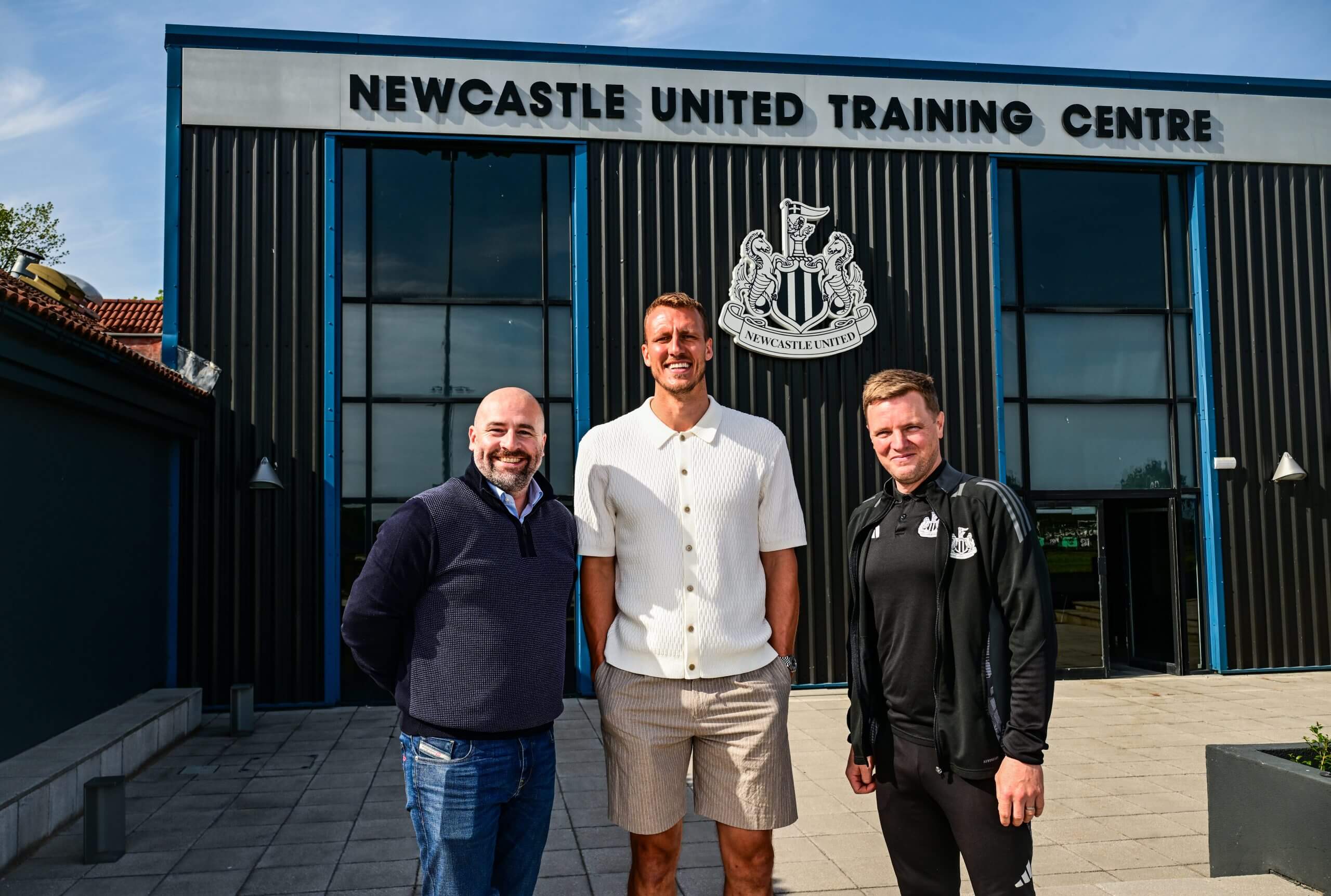
Paul Mitchell has suggested he can be a “nightmare” to work with. His closest allies rave about his strengths, but even they attest to his unique and direct style.
Mitchell is conscious of that and it is why the identity of his direct boss is important to him. The apparent breakdown in his relationship with Daniel Levy reportedly led Mitchell to resign at Tottenham Hotspur in 2016. Chief executive Darren Eales was also a critical factor in the now-43-year-old cutting short his planned break from football to join Newcastle United last July.
Advertisement
The pair briefly worked together at Spurs and Eales convinced Mitchell they could shape the St James’ Park project. From the start, Mitchell indicated to owners that his Tyneside tenure was likely to be inextricably linked with Eales’.
Within three months, Eales announced he had blood cancer and would be stepping down. That left Mitchell with a decision of his own, especially given Eddie Howe’s established power base, and the sporting director has been considering his future for a while.
A final decision was only communicated upwards on Tuesday morning — Jamie Reuben, the co-owner, and officials from Saudi Arabia’s Public Investment Fund (PIF) did try to convince Mitchell to stay, so the sporting director promised a firm judgement at a long-planned post-season meeting — and then hastily relayed to supporters. Just as Mitchell’s arrival on July 4 had not been trailed, nor was his departure.
Yasir Al-Rumayyan, the club chairman, watched Newcastle’s final-day loss to Everton on Sunday before holding meetings with Mitchell and Howe, during which the upcoming transfer window was discussed. The head coach stressed the need for quick action and dynamism in the market.

Paul Mitchell, left, was in the publicity pictures for the announcement of Dan Burn’s new contract on Friday (Serena Taylor/Newcastle United via Getty Images)
Within two days, the sporting director announced his departure after less than a year. Despite a fractious start to Howe and Mitchell’s relationship last summer, there was no suggestion, publicly or privately, of bitterness or an angry parting of ways.
Mitchell and Howe’s working partnership had built over time and become more than functional — with conversations as recently as Monday, when Callum Wilson’s future was discussed (an exit appears increasingly likely) — yet Newcastle’s on-field success across 2024-25, which brought a first domestic trophy in 70 years and Champions League qualification, only strengthened the head coach’s authority.
Advertisement
The apparent shift in direction last summer towards Howe being less directly involved in transfers, while retaining the final say, was implemented on Eales’ watch and, with the CEO going, perhaps the recruitment model will be tweaked once more. “Boundaries” was a word Howe repeatedly used last July to cite his unease at Mitchell’s arrival, and that may also explain the sporting director’s uncertainty about working for an unknown boss with fresh ideas.
Mitchell is not believed to have another job lined up. The expectation is he will take time out to spend with his family, as was his intention before Eales’ approach.
Most club staff were shocked by the news, only learning about it via the club’s statement at 1pm on Tuesday. Only a select few high-ranking figures inside Newcastle had, for a matter of weeks, known Mitchell’s exit was likely, but the swiftness of his departure surprised some who had expected he would see out the summer window, rather than leave by the June 30 accountancy deadline.
Over the past few days, Mitchell had been in contact with directors of other clubs, agents and even potential recruits to Newcastle’s staff — for roles ranging from fresh senior positions to lower-level jobs — and he was operating as normal, with no indication he was going.
Given the previous tension between them, Mitchell’s impending departure has been portrayed by some as essentially representing a win for Howe. Should Howe’s previous influence over recruitment be reasserted, as seems likely, then it could be seen as a victory, albeit a Pyrrhic one — another summer of instability is not to the head coach’s benefit following three windows without a signing to improve the first XI.
Howe declared on Sunday that “speed is key” for Newcastle and, while targets have now been finalised and Mitchell will remain in situ until June 30, Newcastle will not have a sporting director or a CEO when pre-season training commences on July 7 (though Eales’ departure date has yet to be confirmed).
Advertisement
No successor to Mitchell has been identified — despite premature links to figures inside and outside the club, including Dougie Freedman, who turned Newcastle down last spring — and the media release did not even state that the search for a direct replacement had begun. There have been claims that another executive restructuring may be considered, whereby the sporting director position is potentially changed or replaced, though such significant calls would ideally be left to a chief executive.
Senior sources insist Newcastle are getting closer to appointing a new CEO, but the process has been ongoing for eight months. James Bunce, the performance director brought in by Mitchell, is not following him out, either, and is due to return for pre-season, though the make-up of the next executive team may influence the future of several employees.
Regardless, several insiders have reiterated Mitchell’s declaration that “the club is in a fantastic position to continue building” during the summer window.
A goalkeeper, centre-back, right-winger and potentially a striker are being sought — Ipswich centre-forward Liam Delap, Crystal Palace centre-back Marc Guehi, Brentford attacker Bryan Mbeumo and Burnley shot-stopper James Trafford are among players heavily discussed — and the recruitment department feel they are ready to move swiftly, even if a signing during the early-June window appears ambitious.
Mercifully, there is no need to sell by June 30 to satisfy PSR (the Premier League’s profit and sustainability rules) either, so a repeat of last year’s mad dash is not envisaged. Mitchell’s exit does not dilute Newcastle’s conviction that none of their big players are for sale, either. Keeping Alexander Isak is priority No 1.
Once again, an interim transfer-committee-style operation may be in place from July 1, just as it was during the January window of 2022 and for the first part of last summer, following Dan Ashworth’s move to Manchester United. However, Amanda Staveley and Mehrdad Ghodoussi, the former co-owners, have since departed, with Mitchell and Eales to follow, leaving a partial vacuum.
Even insiders accept that having extensive plans is one thing, but actually executing them successfully in a competitive market will be challenging. Who handles the minutiae of important tasks, such as leading contract negotiations with present and prospective players, must still be clarified.
Advertisement
But other experienced figures remain and will be further empowered, with proven processes already in place and a staffing reshuffle not deemed necessary.
Andy Howe, the assistant head of recruitment, is influential behind the scenes; trusted by Eddie Howe, his uncle, and valued by the owners, he identified Sandro Tonali, Bruno Guimaraes and Tino Livramento, among others, and has increasingly become a point of contact with leading agents.
Steve Nickson, the head of recruitment, scouted Sven Botman and Yankuba Minteh, has been in position since 2017 and will offer his expertise and global connections, which have further expanded into South America and Africa recently.
Eddie Howe is also meticulous in his due diligence on players, watching hours of footage and seeking exhaustive background checks. The head coach has the ultimate say on transfers and will push ownership to enact his blueprint early.
For the next month, Mitchell will continue as normal, with greater clarity to be delivered on how the transitional framework will look.
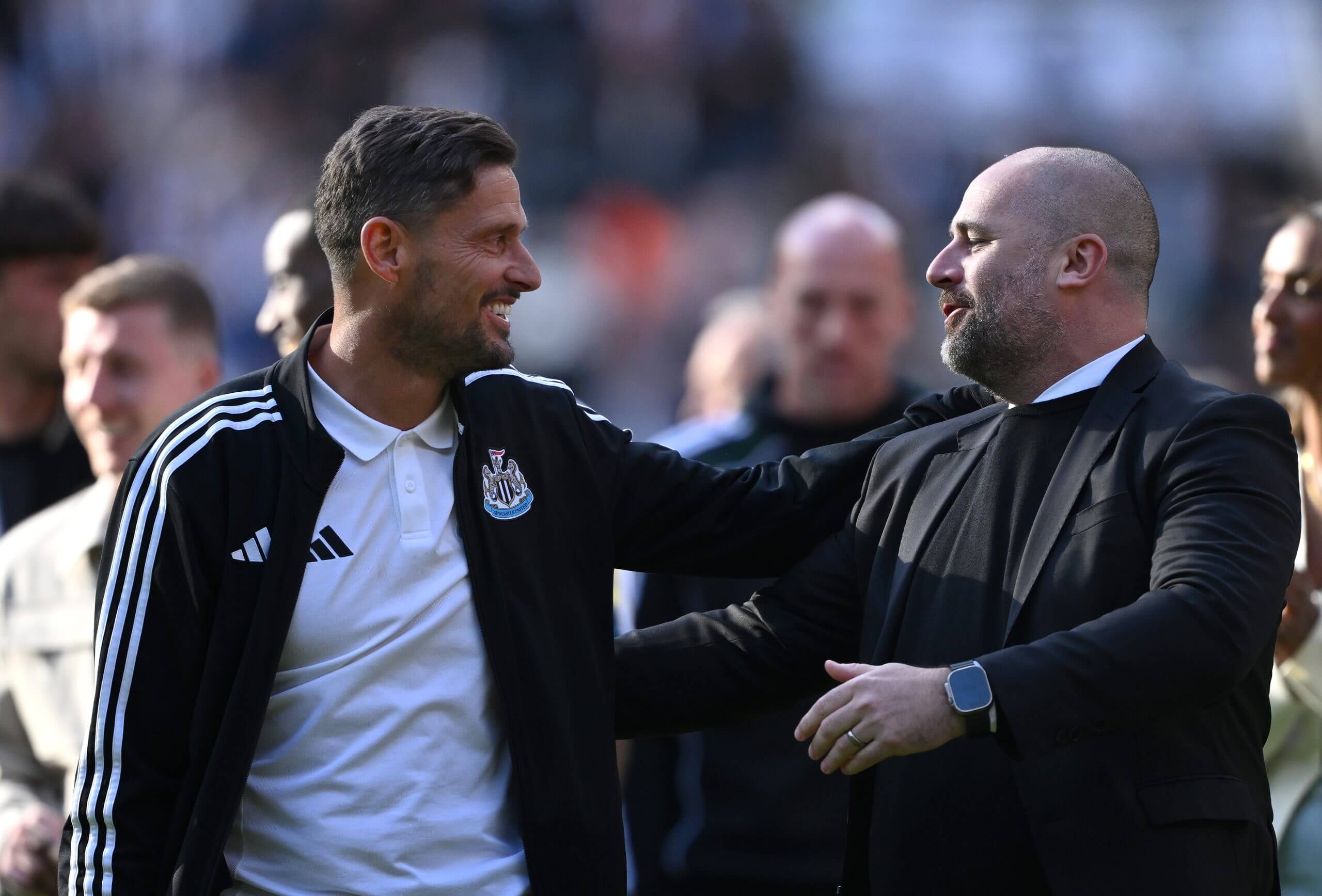
Paul Mitchell, right, celebrates Newcastle’s qualification for the Champions League with assistant manager Jason Tindall on Sunday (Stu Forster/Getty Images)
There is still time for Mitchell to bring in only a second first-team signing during his watch — after the initial £10million ($13.5m) outlay on William Osula, who was always viewed as a “project player”, last August — with the pre-Club World Cup window operating from June 1 to 10, then the second window opening on June 16. He has been financially hamstrung due to PSR constraints.
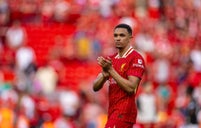
GO DEEPER
Explained: The Club World Cup transfer window and how contracts will work
Embodying Newcastle’s 2024-25, Mitchell’s tenure has been turbulent.
Howe was given less than 24 hours’ notice of his arrival and, initially, the pair clashed, leading the head coach to raise doubts about his own future at Adidas HQ in July. When Mitchell clumsily questioned whether Newcastle’s post-takeover recruitment had been “fit for purpose” during a media roundtable in September — he had intended to suggest processes needed modernising, rather than to decry previous signings, as it sounded — Howe felt compelled to publicly defend his transfer record.
Advertisement
Mitchell’s failed (public) pursuit of Guehi throughout August also left a negative impression with some supporters, though the sporting director did only arrive mid-window.
He was also operating in challenging PSR circumstances, the scale of which perhaps even surprised him. Had Guehi joined, further sales beyond those of Miguel Almiron and Lloyd Kelly for a combined £31m would have been required to balance the books. Extracting a fee rising to around £20m for Kelly from Juventus — the defender started only four league games after joining on a free from Bournemouth — remains scarcely believable and underlines Mitchell’s negotiating skills.
The club’s inability to spend meant that Abdukodir Khusanov and Vitor Reis, two young defenders who Mitchell put background work into trying to line up, moved to Manchester City in January instead.
Exciting youth-level additions have been championed by Mitchell, however, with Vakhtang Salia, Baran Yildiz and Kyle Fitzgerald brought in. Antonio Cordero will join from Malaga, despite interest from Real Madrid and Barcelona, with promotional shots already taken.
Although men’s first-team recruitment captures the headlines, Mitchell’s influence runs through the club. He has continued to explore the potential for a multi-club model, been involved in plans for a future state-of-the-art training ground, appointed Bunce and promoted Jack Ross to a strategic role, forging relationships with partner clubs.
Mitchell also championed the women’s team, striking an excellent relationship with Becky Langley, the manager, and providing increased resources. He appointed Grace Williams, who is set to arrive from Crystal Palace as women’s director of football.
Following a difficult start, Howe and Mitchell also built a decent working relationship, with “collaboration” becoming a buzzword for both. That improved communication would have been tested across the course of a vital window, but instead, the head coach is braced for another summer of flux in the boardroom.
(Top photo: Robin Jones/Getty Images)
This news was originally published on this post .





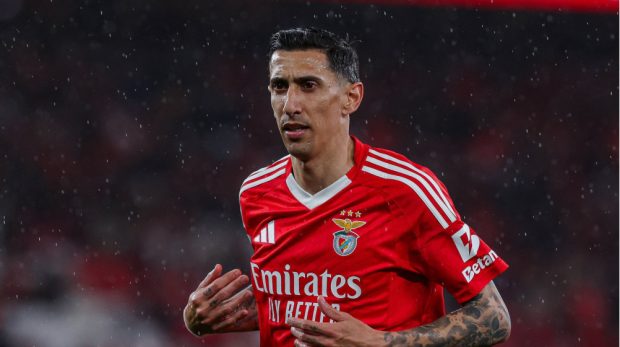



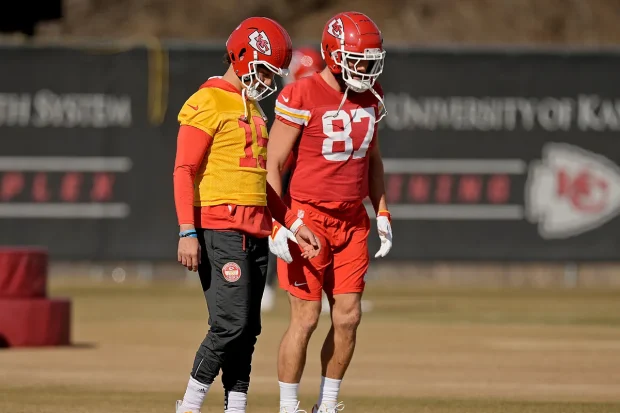
Be the first to leave a comment